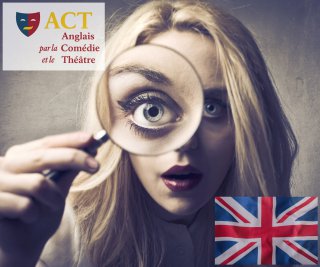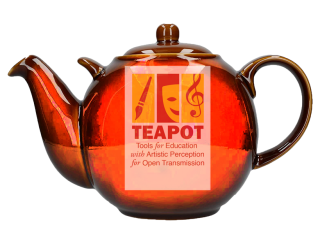
Tools for Education with Artistic Perception for Open Transmission
Erasmus Strategic Partnership Project.
If after reading this, our project interests you, you may like to join the network and
participate in our thoughts, reflections and experiments. If you are from the world of
culture and the arts or actors from the world of education and training, our doors are
open to you!
English Com’Eddy Theatre (Bordeaux-France)
Athens Lifelong Learning Institute (Athens-Greece)
University of Zadar — Department of Languages (Zadar-Croatia)
Balamo’s Teatro APS (Ferrara-Italy)
How to teach languages effectively? How to trigger desire and maintain
motivation? Two questions are regularly raised in the debates on training. At
the same time, the world of culture is on the alert. With the health crisis we are
facing, this sector must look for solutions to work differently. Can there be a
link between these two universes? We* think so.
In a world grappling with a major health crisis, the first effect is a self-preservation
reflex of countries turning inwards on themselves and closing borders, while Europe
is going through a sharp migration crisis that is awakening the old demons of
protectionism, it’s not a time for sharing. However, the «old Europe» as it is
sometimes called, is not in its first combat. Society is changing, standards are
moving, but what about teaching methods? Does the whole digital world call for the
end of social interaction? Will distance learning widen the gap of inequality in
education? Yet the term network never ceases to resonate. And this is the one we
want to exploit to accomplish our goal:
Take action to join our local networks to the major European chain!
Breaking down the barriers that separate the artistic world from the more formal
world of language teaching!
Open awareness and unlock creativity for pedagogical innovation for the benefit of
all learners!
By building a network of creatives and teachers, by bringing education and
culture closer together, we can open up the possibilities and promote social inclusion
by offering trainers the opportunity to involve their learners in a collective project.
Language learning, the heart of our project, is a fundamental education, one of the
first teachings of the child and also one of the first teachings offered to migrants.
For many years now, we have been observing the implementation of innovative
pedagogies, we discuss the actionable perspective promoted for fifteen years by the
CEFR1 , and, even more recently, the contributions of educational movements such
as ‘New Education.’ To move away from this position of the all-powerful trainer, it is
necessary to include the learner in his or her own learning. By arousing curiosity, the
individual becomes more accessible, more permeable, the transfer of knowledge is
then shared and assimilation becomes deeper and lasting.
Cultural actors are those who hold the key to helping trainers adapt to
increasingly heterogeneous groups of learners, who sometimes do not speak a word
of the host country’s language or even a word of another European language.
Culture is a foundation upon which to unite people and restore their strength, their
desire for openness and their thirst for enterprise:
The cultural themes that refer to the common history of humanity represent a
real contribution to the pedagogical contents. Culture alone makes a
significant contribution to the motivation of learners.
The artist inherently has a creative approach that can enrich the pedagogical
engineering to develop new content as well as new ways of teaching. With
each creation, the artist seeks to awaken the emotions of his audience through
communication techniques other than verbal. It would therefore be very
interesting for him to take an active part in this project.
What can we do to capture the attention of learners? To awaken their senses, to
nourish them with culture, to stimulate their dreams in order to untie their tongues.
The methods that directly involve the student through scenarios and experiments
allow him to reveal himself and assert himself within a group. Thus, if the trainer
collaborates with the artist, the act of formation will reveal the ability of each
one to communicate with the unknown, to understand beyond words
sometimes, by attractive, lively and effective educational content.
1 Common European Framework of Reference for Languages: Learning, Teaching,
Assessment

